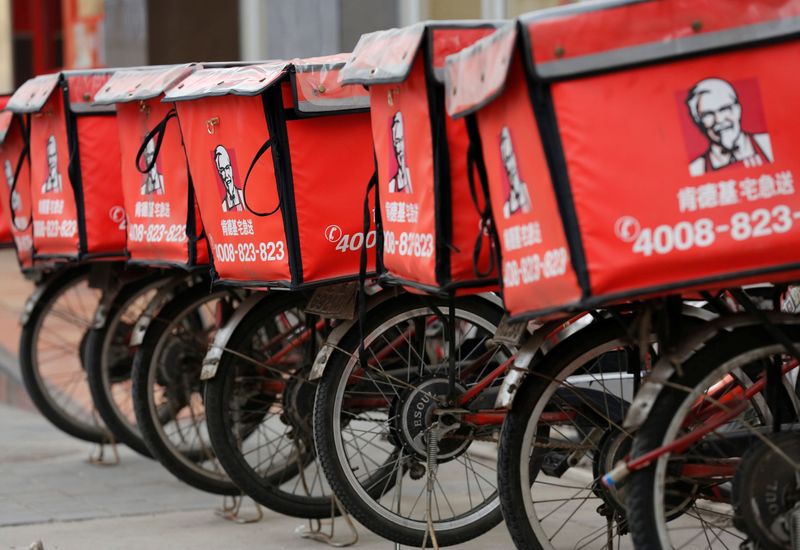By Lisa Baertlein
(Reuters) - Yum Brands Inc (N:YUM), owners of KFC and Pizza Hut, blamed tensions over the South China Sea for an unexpected dip in quarterly sales at its established China restaurants.
Yum, which will spin off its China restaurants on Oct. 31, said the last quarter started well there - but its stores were hit by protests after an international court rejected China's claim to historic rights in the South China Sea.
"If not for this event, we believe the China Division would have delivered its fifth consecutive quarter of positive same-store sales growth," Greg Creed, Yum's CEO, said.
He said the impact dissipated through August and September.
Sales at Yum China restaurants that have been open at least one year fell 1 percent during the fiscal third quarter ended Sept. 3.
Analysts polled by research firm Consensus Metrix had expected a 4.1 percent sales gain for the China unit, which is Yum's top profit driver.
An international tribunal in The Hague ruled in favour of the Philippines in a landmark case in July, finding that China had violated international law in the South China Sea.
At the time several brands were caught up in short-lived protests and calls for a boycott, including Apple (O:AAPL). State-controlled media called for restraint.
Some analysts questioned the extent of the impact of the sporadic protests in China, where Yum is also battling tough competition and a weak economy.
But Shaun Rein, managing director of Shanghai-based China Market Research Group, said Yum's KFC, with more than 5,000 stores across China, was a lightning rod for anti-U.S. protests.
"We estimate sales dropped 15 to 25 percent in some of the cities because a lot of the protestors were looking for a big American brand to attack, to protest against. So they did have to shut a lot of stores in North-east China," he said.
"The big challenge for them is, will there be lingering anti-American sentiment?"
Yum's China business will begin trading as a separate company on Nov. 1 on the New York Stock Exchange under the ticker symbol YUMC.
Chinese investment firm Primavera Capital and an affiliate of Alibaba Group Holding Ltd (N:BABA) said in September they would buy a stake in Yum China for $460 million (£362 million).
Yum's net income jumped 48 percent to $622 million, or $1.56 per share, helped by lower taxes, gains from selling restaurants to franchisees, lower food and paper costs and other items.
Total revenue fell 3 percent to $3.32 billion for the third quarter.

The Pizza Hut division underperformed expectations, posting a same-store sales decline of 1 percent. Taco Bell and KFC, excluding China, beat estimates with growth of 3 percent and 4 percent, respectively.